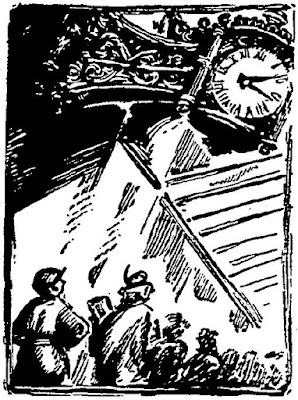 |
| London : Pushkin Press, 2017 |
"It was still dark, in the early morning hours of the twenty-second of December 1946..."
The Evenings (De Avonden in the original Dutch) was published in 1947 when the author was just shy of 24 years old. It describes the final 10 evenings of 1946 in suburban Amsterdam from the perspective of 23-year-old Frits van Egters. The focus, as the title suggests, is on the evenings. The days are largely ignored as Frits is at work, a job that he describes as follows:
"I work in an office. I take cards out of a file. Once I have taken them out, I put them back in again. That is it."
Frits lives with his parents and spends much of his time avoiding the simmering conflict between them. He spends time with friends and seems to want a real connection with others but instinctively sabotages the possibility through his use of caustic humor. Others aren't sure how to interpret the humor, some ignore it, others join in.
While it isn't a perfect analogy, there's something of a Holden Caulfield in Frits, something of a lost soul wondering through town trying to find himself and avoiding his own feelings. While others seem to be getting back to some semblance of normal after World War II, Frits seems lost.
The Evenings isn't a gay novel per se, but Frits' interaction with the petty criminal Maurits offers the slightest suggestion that Maurits is gay and maybe that's part of why Frits puts the most effort into avoiding him throughout the novel. As well, the general feeling of being out of place that is so present in the novel speaks strongly to the gay experience.
